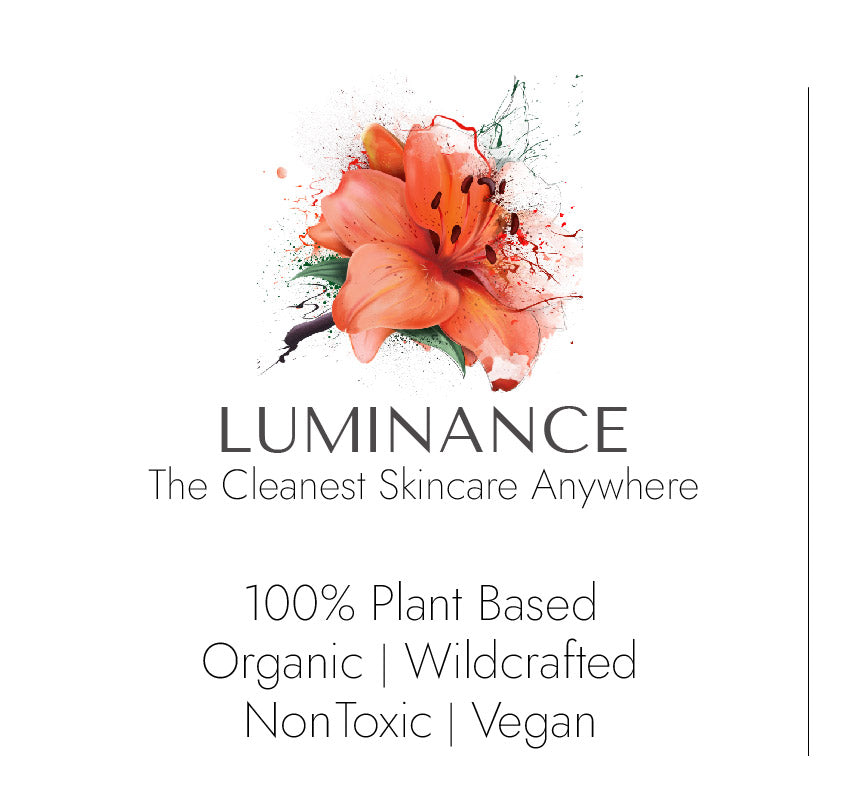Here's What's Going On And How To Protect Your Skin.
Dry Winter Air Can Have A Significant Impact On The Health Of Your Skin.
As the temperature drops, humidity levels tend to decrease, leading to an environment where the air is drier. This lack of moisture can have several effects on the skin, affecting its overall health and appearance.
We’re here with straight forward guidance to get you through the winter with a healthier, more comfortable complexion. By making a couple of adjustments to your normal routine, you can keep dry, cracked skin at bay and protect your skin’s barrier.
Here's What You're Up Against
- Dehydration: The most immediate impact of dry winter air on the skin is dehydration. The low humidity levels can strip the skin of its natural oils, leading to dryness and tightness. This can be especially problematic for individuals with sensitive or already dry skin.
- Flakiness and Itchiness: Dry air tends to draw moisture out of the skin, causing it to become flaky and itchy. The outer layer of the skin may start to peel, and small cracks may appear, making the skin more susceptible to irritation and redness.
- Exacerbation of Skin Conditions: People with pre-existing skin conditions such as eczema or psoriasis may find that these conditions worsen during the winter months. The lack of moisture in the air can trigger flare-ups and intensify the symptoms associated with these conditions.
- Chapped Lips: The delicate skin on the lips is particularly prone to dryness in winter. Cold, dry air can cause the lips to become chapped and cracked. Windy conditions can further contribute to the discomfort.
- Premature Aging: Prolonged exposure to dry air can accelerate the aging process of the skin. Fine lines and wrinkles may become more noticeable, and the skin may lose its natural elasticity.
- Reduced Healing Capacity: Dry skin is more prone to damage, and the healing process may slow down. Scratches, cuts, or other injuries may take longer to heal in a dry environment.
Dont't Dispare, These Simple Practices That Can Help Keep Your Skin Glowing And Healthy.
-
Hydration is Key: The foundation of healthy winter skincare is hydration. Opt for organic moisturizers with natural oils, herbals and skin butters. Try to avoid Shea Butter, there are better alternatives that will not clog your pores
-
Gentle Cleansing: Avoid harsh, drying cleansers. Opt for a gentle organic, pH balanced soap based cleanser to clean your face without stripping away essential oils and conjesting your pores.
-
Exfoliate Mindfully: Exfoliation is essential to remove dead skin cells, but be gentle. Non abrasive enzyme exfoliants are kinder to your skin. Seriously avoid harsh acids and scratchy anything on your face. Exfoliation once every few weeks is a nice interval.
-
Soothing Ingredients: Look for skincare products with soothing ingredients like chamomile, calendula, and green tea. These natural ingredients can help calm redness and irritation.
-
Sunscreen is Year-Round: Don't forget sunscreen, even in winter. UV rays can still damage your skin, especially if reflected off snow. Try to avoid heavy sunscreens, a 30 spf is absolutely all anyone needs as this spf blocks 98% of the suns harmful rays.
So For Starters, Avoid Skincare Products With Alcohols, Waxes, Acids, Synthetics And Astringents
This sounds obvious and you wonder why any skincare product would have ingredients that take the moisture out of your skin, but it's absolutely the case. So when the weather is cold, it's even more critical that you avoid many of the common ingredients you find in commercial skincare.
- Avoid products containing alcohols, glycerin, foaming agents, solvent acids, astringents or synthetic oils
- Look for products containing skin friendly oils and healthy nutrients.
Separately any of these ingredients will stress and dry your skin, together in any combination will multiply the effects, resulting in damage to your skin as the weather settles into the Fall and Winter.
So go through the products you're using on your skin and read the ingredient labels :: this is a critical first step :: if you see something you don't recognize, google it and find out what it is and what it's doing to your skin.
If you see some of the ingredients I'm suggesting you avoid, chances are your skincare is not really helping your skin stay healthy and comfortable.
Winter Skincare Routine: These Practices Will Help Protect Your Skin
In The Morning
- Gentle Soap Based Cleansing: It's critical to keep your skin cleansed and free of particles that can clog your pores and contribute to dryness.
- Tone With A Pure Floral Water: After rinsing the lather from your cleansing, you will have used water whose pH is too high for your skin, so a floral water toner will rebalance the pH of your skin after rinsing.
- Nourish With A Serum: Serums provide a deep foundation upon which your moisturizer builds. A plant based serum with a naturally rich vitamin and nutrient content is best. For best results, apply your serum while your skin is still slightly moist with toner.
- Moisturize: Again, your skin should still be a bit moist with toner and this is the perfect time to moisturize. Start with a small dot on your forhead, nose, both cheeks and your chin. Gently massage your moisturizer into your skin with your fingertips
In The Evening
- Remove Any Make-Up: It's super important that you remove what happened during the day from your face. At night and when you sleep, is when your skin is most actively replenishing itself. Of course a plant based make-up remover without solvents or alcohols is best and healthier for your skin.
- Now Repeat The Morning Routine: Your skin needs to be cleansed, toned and moisturized twice daily to be it's healthiest, most glowing best.
- Something Extra At Night: Use an Avocado Butter based skin butter just before you go to bed. This will give you a bit more moisture foundation. This will also help if the air in your home is dry.
Every Now And Then A Mask
Treat yourself to a nourishing organic face mask or a soothing DIY mask for added hydration. Every couple of weeks an enzyme exfoliation mask can help your skin hold moisture and stay healthy.
Take Care Of Your Lips, But No Bees Wax
Bees wax pulls the natural moisture from your lips leaving them dry. Bees wax lip balms feel nice in the beginning because they pull the oils naturally embedded deeply in your lips to the surface, until there isn't much left. This is when you will find you need more and more just to keep your lips feeling somewhat comfortable. Then when your lips are depleted, just a few hours and your lips will be dry and desperate for moisture. It's an awful circle. There are better alternatives. Use a lip balm that uses plant wax, it will protect your lips without draining them of moisture and it'll be vegan. Luminance Lip Balms use plant wax.
The Impact of Dry Heated Air in Our Homes:
During the winter months, we often rely on heating systems to keep our homes warm and cozy. However, these heating systems can have a significant impact on our skin:
-
Reduced Humidity: Indoor heating can drastically reduce the humidity levels in our homes, leading to dry air. This dry air can sap moisture from our skin, exacerbating issues like dryness and irritation.
-
Increased Sensitivity: Dry heated air can make our skin more sensitive and prone to redness and itching.
-
Cracked Skin: Without adequate humidity, the skin's natural barrier can become compromised, leading to cracked and painful skin, particularly on the hands and face.
The Most Unhealthy Air Anywhere Is The Heated Air In Your Car
We don't usually think about our cars as a major challenge for our skin, but car heating systems remove all the moisture from the air, creating an extremely dry environment. The colder it is outside the more we use our heaters. It's ok, just make sure your skin is well nourished and protected.
-
Limited Ventilation: In a heated car, there is limited ventilation, which can lead to dry, stale air that dehydrates the skin.
-
Direct Heat: Heated air blowing directly on your face from car heaters can further strip away moisture from your skin, exacerbating dryness and discomfort.
We've Covered The Basics, Now Lets Have A More Specific, In Depth Discussion, And A Few Product Recommendations From Our Line That'll Help Your Skin Through The Winter.
Visit Luminance Seasonal Skincare Collection
Balanced Cleansers That Will Gently Cleanse Without Drying Or Irritating Your Skin
Floral Water Toners Adjust The pH Of Your Skin To Increase Moisture And Soothe Irritation
Toning is a step often skipped, but toners are the helping hand your skin needs to balance itself and maintain its natural state. The job of a toner is to restore your skin’s pH, but they also offer cleansing properties. After showering or washing our face with hard water (mineral-rich water), our pH is impacted. By applying a toner immediately afterward, you are helping your skin remove minerals absorbed by your skin that were present in the hard water. Your toner preps your face for the day. By reducing cell gaps and tightening the pores ever so slightly, your toner helps reduce and prevent environmental contaminants from penetrating your skin. Look for a toner with natural astringent properties and never use an alcohol-based toner. Alcohol and chemical-laden toners are top contributors to dry skin. Toners don’t need a laundry list of ingredients. They just need a base, and essence to enhance the benefits of the base. An essence can be a bloom like lavender, rose, or orange blossom. Try a base that uses reverse osmosis water instead of witch hazel or alcohols. Your skin will feel more hydrated than with the dehydrating latter.
Serums Give A Deep Foundation Of Moisture Protection
Moisturizers Protect And Nourish The Surface Of Your Skin.
And Don't Forget Your Lips
There you have it! Our best tips for winter skincare. We hope these tips will help eliminate itchy winter skin and leave you feeling hydrated and glowing.








